- Home
- Daphne Du Maurier
Frenchman's Creek
Frenchman's Creek Read online
Daphne Du Maurier
Frenchman's Creek
First published in 1942
Chapter I
WHEN THE EAST WIND blows up Helford river the shining waters become troubled and disturbed, and the little waves beat angrily upon the sandy shores. The short seas break above the bar at ebbtide, and the waders fly inland to the mud-flats, their wings skimming the surface, and calling to one another as they go. Only the gulls remain, wheeling and crying above the foam, diving now and again in search of food, their grey feathers glistening with the salt spray.
The long rollers of the channel, travelling from beyond Lizard point, follow hard upon the steep seas at the river mouth, and mingling with the surge and wash of deep sea water comes the brown tide, swollen with the last rains and brackish from the mud, bearing upon its face dead twigs and straws, and strange forgotten things, leaves too early fallen, young birds, and the buds of flowers.
The open roadstead is deserted, for an east wind makes uneasy anchorage, and but for the few houses scattered here and there above Helford passage, and the group of bungalows about Port Navas, the river would be the same as it was in a century now forgotten, in a time that has left few memories.
In those days the hills and the valleys were alone in splendour, there were no buildings to desecrate the rough fields and cliffs, no chimney pots to peer out of the tall woods. There were a few cottages in Helford hamlet, but they made no impression upon the river life itself, which belonged to the birds-curlew and redshank, guillemot and puffin. No yachts rode to the tide then, as they do to-day, and that stretch of placid water where the river divides to Constantine and Gweek was calm and undisturbed.
The river was little known, save to a few mariners who had found shelter there when the southwest gales drove them inshore from their course up-channel, and they found the place lonely and austere, a little frightening because of the silence, and when the wind was fair again were glad to weigh anchor and set sail. Helford hamlet was no inducement to a sailor ashore, the few cottage folk dull-witted and uncommunicative, and the fellow who has been away from warmth and women over-long has little desire to wander in the woods or dabble with the waders in the mud at ebbtide. So the winding river remained unvisited, the woods and the hills untrodden, and all the drowsy beauty of midsummer that gives Helford river a strange enchantment, was never seen and never known.
To-day there are many voices to blunder in upon the silence. The pleasure steamers come and go, leaving a churning wake, and yachtsmen visit one another, and even the day-tripper, his dull eye surfeited with undigested beauty, ploughs in and out amongst the shallows, a prawning net in hand. Sometimes, in a little puffing car, he jerks his way along the uneven, muddy track that leads sharply to the right out of Helford village, and takes his tea with his fellow-trippers in the stone kitchen of the old farm-building that once was Navron House. There is something of grandeur about it even now. Part of the original quadrangle still stands, enclosing the farm-yard of to-day, and-the two pillars that once formed the entrance to the house, now overgrown with ivy and encrusted with lichen, serve as props to the modern barn with its corrugated roof.
The farm kitchen, where the tripper takes his tea, was part of Navron dining-hall, and the little half-stair, now terminating in a bricked-up wall, was the stair leading to the gallery. The rest of the house must have crumbled away, or been demolished, for the square farm-building, though handsome enough, bears little likeness to the Navron of the old prints, shaped like the letter E, and of the formal garden and the park there is no trace to-day.
The tripper eats his split and drinks his tea, smiling upon the landscape, knowing nothing of the woman who stood there once, long ago, in another summer, who caught the gleam of the river amidst the trees, as he does, and who lifted her head to the sky and felt the sun.
He hears the homely farm-yard noises, the clanking of pails, the lowing of the cattle, the rough voices of the farmer and his son as they call to each other across the yard, but his ears are deaf to the echoes of that other time, when someone whistled softly from the dark belt of trees, his hands cupped to his mouth, and was swiftly answered by the thin, stooping figure crouching beneath the walls of the silent house, while above them the casement opened, and Dona watched and listened, her hands playing a little nameless melody upon the sill, her ringlets falling forward over her face.
The river flows on, the trees rustle in the summer wind, and down on the mud-flats the oyster-catchers stand at ebbtide scanning the shallows for food, and the curlews cry, but the men and women of that other time are forgotten, their head-stones encrusted with lichen and moss, their names indecipherable.
To-day the cattle stamp and churn the earth over the vanished porch of Navron House, where once a man stood as the clock struck midnight, his face smiling in the dim candle-light, his drawn sword in his hand.
In spring the farmer's children gather primroses and snowdrops in the banks above the creek, their muddy boots snapping the dead twigs and the fallen leaves of a spent summer, and the creek itself, swollen with the rains of a long winter, looks desolate and grey.
The trees still crowd thick and darkly to the water's edge, and the moss is succulent and green upon the little quay where Dona built her fire and looked across the flames and laughed at her lover, but to-day no ship lies at anchor in the pool, with rakish masts pointing to the skies, there is no rattle of chain through the hawser, no rich tobacco smell upon the air, no echo of voices coming across the water in a lilting foreign tongue.
The solitary yachtsman who leaves his yacht in the open roadstead of Helford, and goes exploring up river in his dinghy on a night in midsummer, when the night-jars call, hesitates when he comes upon the mouth of the creek, for there is something of mystery about it even now, something of enchantment. Being a stranger, the yachtsman looks back over his shoulder to the safe yacht in the roadstead, and to the broad waters of the river, and he pauses, resting on his paddles, aware suddenly of the deep silence of the creek, of its narrow twisting channel, and he feels-for no reason known to him-that he is an interloper, a trespasser in time. He ventures a little way along the left bank of the creek, the sound of the blades upon the water seeming over-loud and echoing oddly amongst the trees on the farther bank, and as he creeps forward the creek narrows, the trees crowd yet more thickly to the water's edge, and he feels a spell upon him, fascinating, strange, a thing of queer excitement not fully understood.
He is alone, and yet-can that be a whisper, in the shallows, close to the bank, and does a figure stand there, the moonlight glinting upon his buckled shoes and the cutlass in his hand, and is that a woman by his side, a cloak around her shoulders, her dark ringlets drawn back behind her ears? He is wrong, of course, those are only the shadows of the trees, and the whispers are no more than the rustle of the leaves and the stir of a sleeping bird, but he is baffled suddenly, and a little scared, he feels he must go no farther, and that the head of the creek beyond the farther bank is barred to him and must remain unvisited. And so he turns to go, heading the dinghy's nose for the roadstead, and as he pulls away the sounds and the whispers become more insistent to his ears, there comes the patter of footsteps, a call, and a cry in the night, a far faint whistle, and a curious lilting song. He strains his eyes in the darkness, and the massed shadows before him loom hard and clear like the outline of a ship. A thing of grace and beauty, born in another time, a painted phantom ship. And now his heart begins to beat, and he strains at his paddles, and the little dinghy shoots swiftly over the dark water away from enchantment, for what he has seen is not of his world, and what he has heard is beyond his understanding.
Once more he reaches the security of his own ship, and looking back for the last time to the entra
nce of the creek, he sees the full moon white and shining in all its summer glory rise above the tall trees, bathing the creek in loveliness and light.
A night-jar churrs from the bracken on the hills, a fish breaks the surface of the water with a little plopping sound, and slowly his ship turns to meet the incoming tide, and the creek is hidden from him.
The yachtsman goes below to the snug security of his cabin, and browsing amongst his books he finds at last the thing for which he has been searching. It is a map of Cornwall, ill-drawn and inaccurate, picked up in an idle moment in a Truro bookshop. The parchment is faded and yellow, the markings indistinct. The spelling belongs to another century. Helford river is traced fairly enough, and so are the hamlets of Constantine and Gweek. But the yachtsman looks away from them to the marking of a narrow inlet, branching from the parent river, its short, twisting course running westward into a valley. Someone has scratched the name in thin faded characters-Frenchman's Creek.
The yachtsman puzzles awhile over the name, then shrugs his shoulders and rolls away the map. Presently he sleeps. The anchorage is still. No wind blows upon the water, and the night-jars are silent. The yachtsman dreams -and as the tide surges gently about his ship and the moon shines on the quiet river, soft murmurs come to him, and the past becomes the present.
A forgotten century peers out of dust and cobwebs and he walks in another time. He hears the sound of hoof-beats galloping along the drive to Navron House, he sees the great door swing open and the white, startled face of the manservant stare upward at the cloaked horseman. He sees Dona come to the head of the stairs, dressed in her old gown, with a shawl about her head, while down in the silent hidden creek a man walks the deck of his ship, his hands behind his back, and on his lips a curious secret smile. The farm kitchen of Navron House is a dining-hall once more, and someone crouches on the stairs, a knife in his hand, while from above there rings suddenly the startled cry of a child, and down upon the crouching figure a shield crashes from the walls of the gallery, and two little King Charles spaniels, perfumed and curled, run yapping and screaming to the body on the floor.
On Midsummer Eve a wood fire burns on a deserted quay, and a man and a woman look at one another and smile and acknowledge their secret, and at dawn a ship sails with the tide, and the sun shines fiercely from a bright blue sky, and the sea-gulls cry.
All the whispers and echoes from a past that is gone teem into the sleeper's brain, and he is with them, and part of them; part of the sea, the ship, the walls of Navron House, part of a carriage that rumbles and lurches in the rough roads of Cornwall, part even of that lost forgotten London, artificial, painted, where link-boys carried flares, and tipsy gallants laughed at the corner of a cobbled mud-splashed street. He sees Harry in his satin coat, his spaniels at his heels, blundering into Dona's bedroom, as she places the rubies in her ears. He sees William with his button mouth, his small inscrutable face. And last he sees La Mouette at anchor in a narrow twisting stream, he sees the trees at the water's edge, he hears the heron and the curlew cry, and lying on his back asleep he breathes and lives the lovely folly of that lost midsummer which first made the creek a refuge, and a symbol of escape.
Chapter II
THE CHURCH CLOCK STRUCK the half-hour just as the coach clattered into Launceston and drew up at the Inn. The driver grunted, and his companion swung himself to the ground and ran to the horses' heads. The driver put two fingers to his mouth and whistled. Presently an ostler came from the Inn on to the square, rubbing his sleepy eyes in astonishment.
"No time to linger. Bring water at once, and a feed for the horses," said the driver, and he rose in his seat, and stretched himself, glancing sourly about him, while his companion stamped his numbed feet on the ground and grinned back at him in sympathy.
"Their backs are not yet broken, that's one blessing," he called softly; "perhaps they are worth all the guineas Sir Harry paid for them after all." The driver shrugged his shoulders. He was too tired and too stiff to argue. The roads were damnation, and if the wheels were broken and the horses destroyed he would be to blame, not his companion.
If they could have travelled quietly, taking a week over the journey, but this devilish break-neck speed, sparing neither man nor beast, all because of my lady's damned ill-humour. Anyway, thank God, she was asleep for the moment, and all was quiet within the coach. His wishes had misled him, however, for as the ostler returned, bearing a pail of water in either hand, and the horses began to drink greedily, the window of the coach was flung open and his mistress leant out, no trace of sleep about her, her eyes wide and clear, and that cool, imperious voice, which he had grown to dread during these last days, as commanding as ever.
"Why the devil this delay?" she said. "Did you not stop to water the horses three hours ago?"
The driver muttered a prayer for patience, and climbing down from his seat he approached the open window of the coach.
"The horses are not accustomed to the pace, my lady," he said; "you forget that during the last two days we have covered nearly two hundred miles-besides, these roads are not fit for animals so highly bred as yours."
"Nonsense," came the reply, "the higher the breeding the greater the endurance. In future you will halt the horses only when I give the command. Pay the fellow here what we owe him, and continue the journey."
"Yes, my lady." The man turned away, his mouth set in weary obstinate lines, and with a nod to his companion, and muttering under his breath, he climbed back again to his seat.
The pails of water were removed, the thick-headed ostler gaped without understanding, and once more the horses pawed at the ground and snorted, the steam rising from their hot flesh, and so away out of the cobbled square and the little sleepy town and out again on to the rough and jolting road.
Dona stared moodily out of the window, her chin cupped in her hands. The children were still asleep, that was one blessing, and even Prue, their nurse, her mouth open and her face flushed, had not stirred for two hours or more. Poor Henrietta had been sick for the fourth time, and now lay pale and wan, a tiny edition of Harry, her golden head against the nurse's shoulder, James never stirred; his was the true deep sleep of babyhood, he would not wake perhaps until they reached their destination. And then-what pitiful anticlimax awaited them! Damp beds no doubt, and closed shutters, the mouldy, stifling smell of unused rooms, the irritation of surprised, disgruntled servants. And all because of an impulse blindly obeyed, a sudden boiling up of resentment against the futility of her life, those endless suppers, dinners, card-parties, those foolish pranks worthy only of an apprentice boy on holiday, that stupid flirtation with Rockingham, and Harry himself, so lazy, so easy-going, fulfilling too well the part of perfect husband with his tolerance, his yawn before midnight, his placid and sleepy adoration. This sense of futility had been growing upon her for many months, nagging at her now and again like dormant toothache, but it had taken Friday night to rouse in her that full sense of self-loathing and exasperation, and because of Friday night she was jolting backwards and forwards now in this damnable coach, bound on a ridiculous journey to a house she had seen once in her life and knew nothing about, carrying with her, in anger and irritation, the two surprised children and their reluctant nurse.
She was obeying an impulse, of course, as she always had done, from the beginning, throughout her life, following a whisper, a suggestion, that sprang into being from nowhere and mocked at her afterwards. She had married Harry on impulse, because of his laugh-its funny lazy quality had attracted her-and because she had thought that the expression in his blue eyes meant much more than it did-and now she realised that after all... but then those were things one did not admit, not even to oneself, and what was the use, the thing was done, and here she was with her two great children, and next month anyway she would be thirty.
No, it was not poor Harry who was to blame, nor even the senseless life they led, nor the foolish escapades, nor their friends, nor the stifling atmosphere of a too early summer fall
ing upon the caked mud and dust of London, nor the silly chatter in the playhouse, the froth, the frivolity, the bawdy nonsense Rockingham whispered in her ear. It was herself who was at fault.
She had played too long a part unworthy of her. She had consented to be the Dona her world had demanded-a superficial, lovely creature, who walked, and talked, and laughed, accepting praise and admiration with a shrug of the shoulder as natural homage to her beauty, careless, insolent, deliberately indifferent, and all the while another Dona, a strange, phantom Dona, peered at her from a dark mirror and was ashamed.
This other self knew that life need not be bitter, nor worthless, nor bounded by a narrow casement, but could be limitless, infinite-that it meant suffering, and love, and danger, and sweetness, and more than this even, much more. Yes, the full force of her self-loathing had come upon coach, with the soft country air bathing her face, she could conjure up once more the hot street smell that came up from the London gutters, a smell of exhaustion and decay, that had merged in some inexplicable way with the heavy, sultry sky, with Harry's yawn as he dusted the skirt of his coat, with Rockingham's pointed smile-as though they all typified a weary, dying world from which she must free herself and escape, before the sky fell in upon her and she was trapped. She remembered the blind hawker at the corner, his eyes pricked for the tinkle of a coin, and the apprentice boy from the Haymarket who ambled along with his tray on his head, shouting his wares in a shrill, disconsolate voice, and how he had fallen over some garbage in the gutter and spilled the contents on the dusty cobbled stones. And oh, heaven-the crowded playhouse, the stench of perfume upon heated bodies, the silly laughter and the clatter, the party in the Royal box-the King himself present-the impatient crowd in the cheap seats stamping and shouting for the play to begin while they threw orange peel onto the stage. Then Harry, laughing at nothing in particular as was his custom, became fuddled with the wit of the play, or possibly he had drunk too much before they had set out. Anyway he had started snoring in his seat, and Rockingham, seizing his chance to make a diversion, pressed against her with his foot and whispered in her ear. Damn his impudence, his air of possession, of familiarity, all because she had permitted him to kiss her once, in an idle moment, because the night was fine. And they had proceeded to supper at the Swan, which she had grown to detest, her amusement at its novelty having ceased-for it was no longer a stimulant to be the only wife amonst a crowd of mistresses. Once it had held a certain attraction, it had sharpened her sense of fun to sup with Harry in these places where no other husband took his wife, to sit cheek by jowl with the ladies of the town and to see Harry's friends first scandalised, then fascinated, and finally whipped into a fever, like curious schoolboys who tread forbidden ground. And yet even then, even at the beginning, she had felt a little prick of shame, a curious sense of degradation, as though she had dressed up for a masquerade and the clothes had not fitted her well.

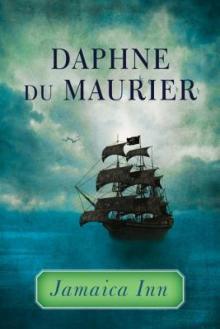 Jamaica Inn
Jamaica Inn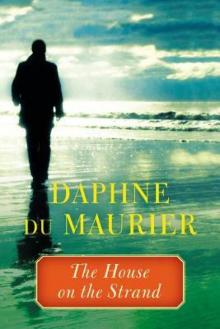 The House on the Strand
The House on the Strand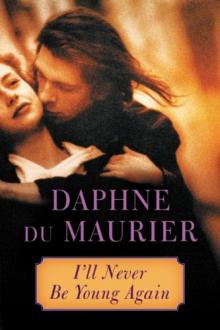 I'll Never Be Young Again
I'll Never Be Young Again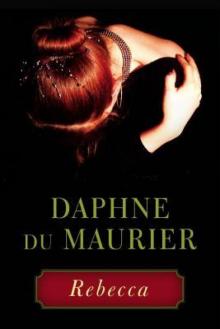 Rebecca
Rebecca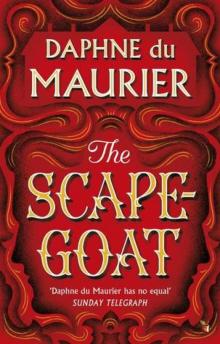 The Scapegoat
The Scapegoat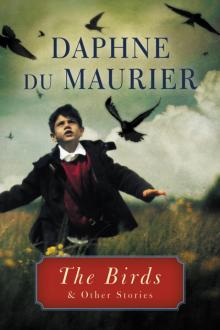 The Birds and Other Stories
The Birds and Other Stories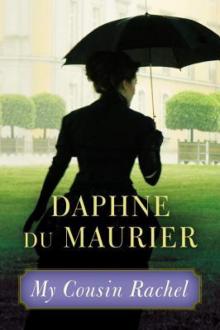 My Cousin Rachel
My Cousin Rachel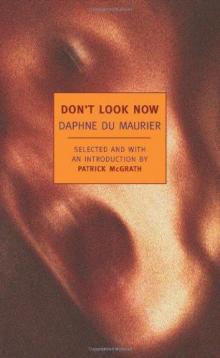 Don't Look Now
Don't Look Now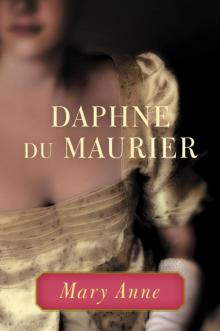 Mary Anne
Mary Anne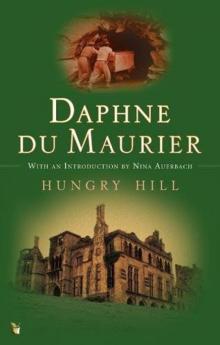 Hungry Hill
Hungry Hill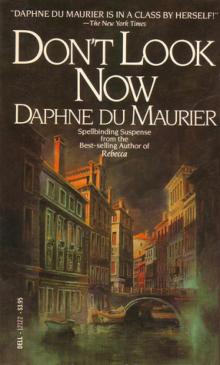 Don't Look Now and Other Stories
Don't Look Now and Other Stories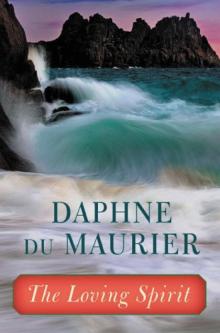 The Loving Spirit
The Loving Spirit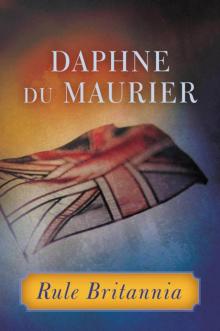 Rule Britannia
Rule Britannia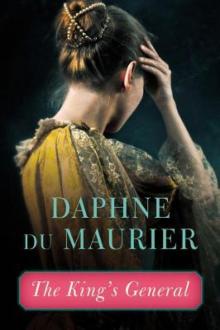 The King's General
The King's General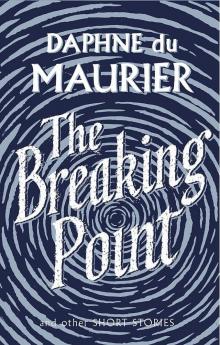 The Breaking Point: Short Stories
The Breaking Point: Short Stories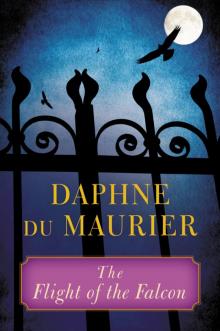 The Flight of the Falcon
The Flight of the Falcon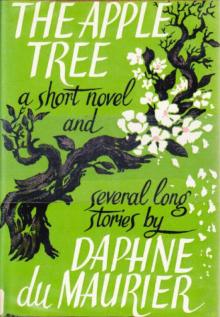 The Apple Tree: a short novel & several long stories
The Apple Tree: a short novel & several long stories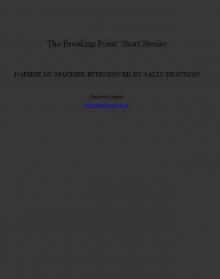 The Breaking Point
The Breaking Point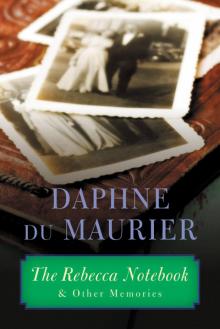 The Rebecca Notebook
The Rebecca Notebook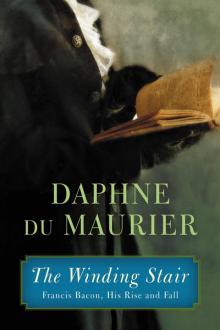 The Winding Stair: Francis Bacon, His Rise and Fall
The Winding Stair: Francis Bacon, His Rise and Fall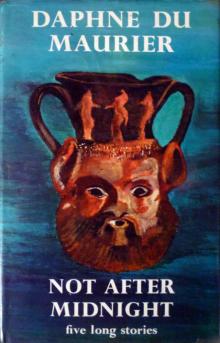 Not After Midnight & Other Stories
Not After Midnight & Other Stories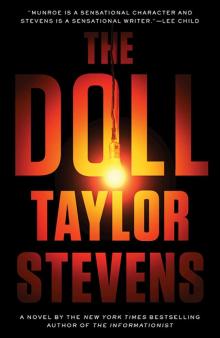 The Doll
The Doll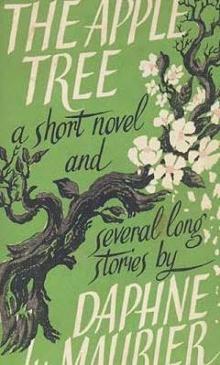 The Apple Tree
The Apple Tree